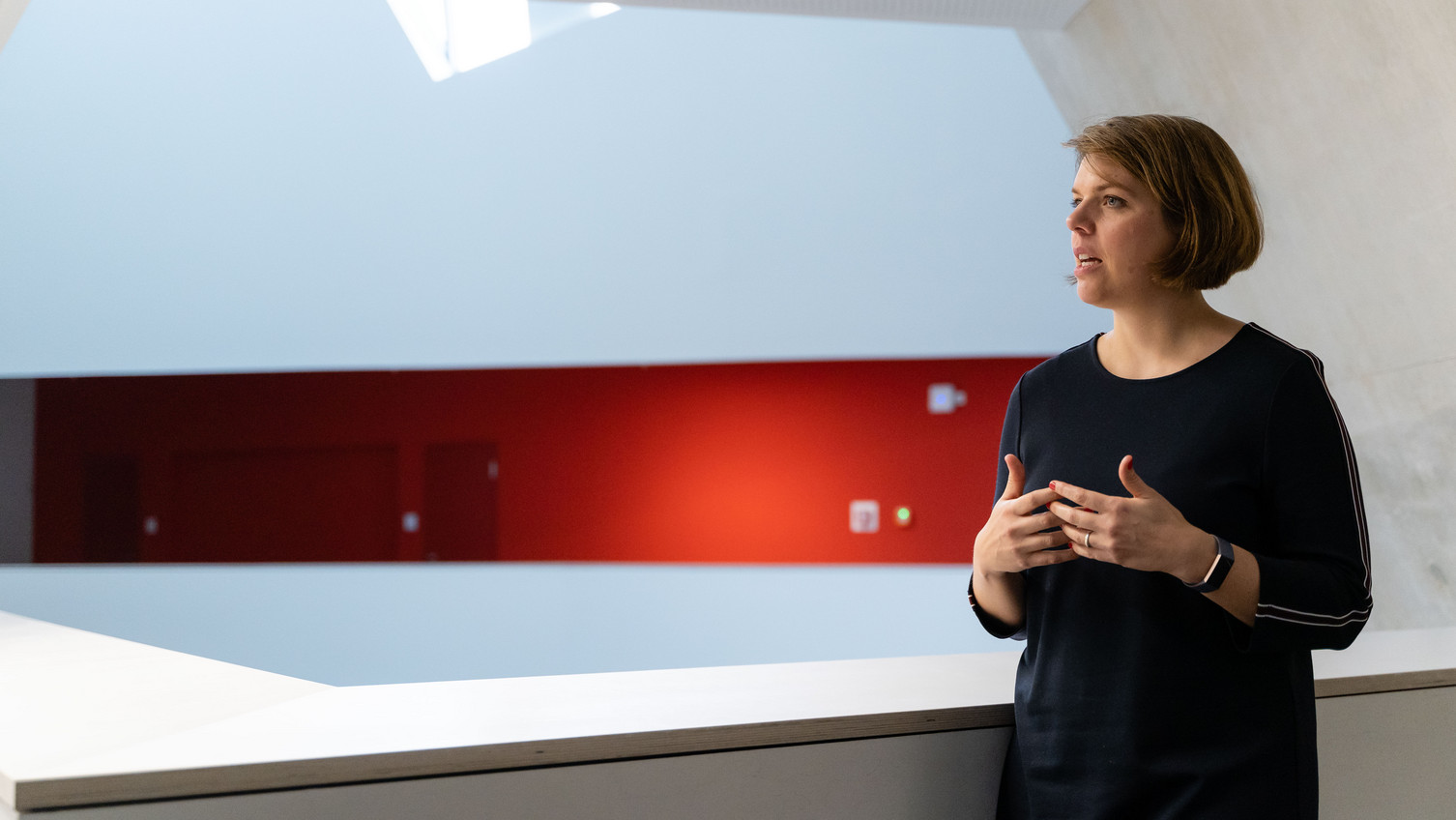„Facetten von Theorie und Praxis“ - University teacher training and vocational training for social pedagogy
May 6, 2025 Symposium with presentations, workshops, and discussion
2025-05-21 The Institute for Social Work and Social Education at Leuphana University of Lüneburg, the Lower Saxony Institute for Early Childhood Education and Development (nifbe e.V.), the Center for Early Childhood Development and Education Research (CEDER), and the Department of Social Pedagogy at the University of Osnabrück jointly hosted a symposium to promote dialogue between the various stakeholders in social pedagogy vocational training.
Following the launch of this dialogue format in 2022, which has since been held alternately at the University of Osnabrück and Leuphana University Lüneburg, the fourth symposium took place this year at Leuphana University Lüneburg with 120 participants. The thematic focus of this year's symposium was “Facets of Theory and Practice.” Facets of theory and practice are found in many different areas of study and training for social education teachers and specialists. These facets range from science to practice, school to social education practice, action to reflection. The perspectives relevant to school-based vocational training across federal states, including those in Hesse and Hamburg, were also included. The dialogue format was not only implemented at the participant level; rather, attention was paid to ensuring that the teams of speakers were gender-balanced. Representatives from academia on the one hand and vocational schools and Lower Saxony's study seminars in the field of social pedagogy on the other hand engaged in dialogue in the context of the symposium.
In her keynote speech, StDin Patricia Gerk (Konrad Zuse School, Fulda) opened the discussion on theory and practice regarding the relationship between school-based and practical components in teacher training. She gave a presentation on the Hessian model of the Individual Training Plan (IAP) as an accompanying and assessment tool for practical training at technical colleges for social services, which led to a dialogue with an interested audience on questions of organization and didactic implementation of support for future social education professionals.
This was followed by two workshop phases, each with a different focus.
One workshop panel was dedicated to the (previously overlooked) fields of social pedagogy. On the one hand, the focus was on educational support. This is because the KMK framework curriculum and the competence-oriented qualification profile refer to generalist training for educators, which qualifies them to work independently and autonomously as specialists in various fields. However, complex requirements and challenges for appropriate broad-based training have increasingly led to the fields of work of educators, alongside early childhood education, care, and upbringing, being pushed into the background in social debates over the last 20 years. The second workshop in this panel dealt with the field of all-day education. With the introduction of the legal right to all-day education and care in primary schools from the 2026/27 school year, all-day schooling will become (even more comprehensively) established as a central field of work for social education professionals. For vocational training in social pedagogy, this development is accompanied by various challenges. This particularly concerns the question of how to integrate the topic of all-day schooling into the social pedagogy framework curricula and the possible establishment of training-related profiles.
A second panel focused on the target groups of the educational programs. The first workshop in this panel focused on the migration-reflective opening of social education programs at (vocational) technical colleges. Based on the current state of research on institutional discrimination in educational institutions, it can be assumed that students with a migration background in particular experience considerable barriers to access and discrimination at (vocational) technical colleges. The workshop served as a forum for exchanging subjective experiences at different school locations and discussing possible strategies for dealing with observed exclusion in a discrimination-critical manner and for designing inclusive vocational schools. The workshop then focused on new forms of training and the requirements for teachers providing practical support. This is because a trend toward more diverse forms of training (e.g., vocational high schools with a focus on social studies, part-time technical colleges for social pedagogy) can be observed in social pedagogy vocational training programs. In this context, the workshop addressed questions about the work requirements of teachers as well as didactic questions about practical support in the context of changing practical training times.
In the third panel on support and counseling, the first workshop focused on the accessibility of students through AI-supported language-sensitive teaching. Teaching in increasingly heterogeneous classes presents teachers with particular challenges, among other things due to the different educational backgrounds and language skills of the students. For teachers, this means designing language-sensitive lessons, tailoring them to students, developing differentiated materials, and providing students with individual support and encouragement. The focus was on designing language-sensitive lessons and using AI to reduce the workload. The second workshop focused on teacher training, in particular on reflection-oriented support for future teachers during their studies. Reflection is a central element in all phases of teacher training. Participants discussed how the three phases can be successfully integrated in a reflection-oriented manner using the examples of the ePortfolio (university) and reflective seminar didactics (teacher training seminar).
Lively discussions on the findings and implications of the workshops brought the symposium to an open conclusion. The constructive dialogue between university teacher training and vocational training in social pedagogy will continue in 2027 with a joint symposium in Osnabrück.

